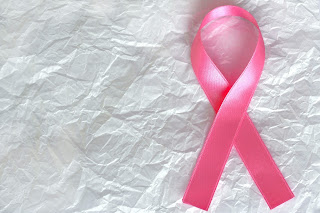Impacted earwax is extremely typical, and it becomes more typical as you age. The cause? As earwax ages, it loses flexibility and becomes more likely to become trapped. It can also result in temporary hearing loss, making it difficult to determine whether your hearing difficulties is due to impacted wax or actual hearing loss (or both).
So, how does one tell the difference, and why is it crucial to understand? One in eight women (at any age) have some difficulty hearing, compared to roughly two males in ten who develop hearing loss before the age of 70. Determining the cause of hearing loss is the first step to enhancing a person's quality of life. Losing the capacity to hear increases the risk of social isolation, anxiety, and depression in older individuals.
What are some of the most typical reasons for hearing loss?
A: Noise exposure, family history, disease, medicine, and most frequently ageing are the leading causes of hearing loss at any age. Anyone over the age of 50 should get their hearing checked. As we age, our hearing loses sensitivity, much like the nerves and every other part of our body. To identify the best course of action, it's crucial to obtain a baseline audiogram from a hearing healthcare practitioner.
How do you know if you have hearing loss or impacted earwax?
A feeling of fullness in the ear canal is a common symptom of hearing loss brought on by impacted earwax. Sometimes, additional symptoms like pain or irritability go along with that sense. Before investing in a hearing aid, it's crucial to screen out any potential causes because they are easily treatable. Visit a specialist or use an over-the-counter instrument like a Smart Otoscope, which provides you a view inside your ear canal, to establish if wax is the only thing affecting your hearing loss.
A feeling of fullness in the ear canal is a common symptom of hearing loss brought on by impacted earwax. Sometimes, additional symptoms like pain or irritability go along with that sense. Before investing in a hearing aid, it's crucial to screen out any potential causes because they are easily treatable. Visit a specialist or use an over-the-counter instrument like a Smart Otoscope, which provides you a view inside your ear canal, to establish if wax is the only thing affecting your hearing loss.
Do you advise ear coning, also known as ear candling?
A: I don't like ear coning very much. I've never truly observed outcomes that are sufficient evidence that it is effective. Even at our office, we use drops and a flushing method to get rid of wax when it becomes a problem. It should go without saying that Q-tips should also be avoided because they might worsen damage when used to clean out the ear canal.
What happens during the earwax removal procedure if you go to an audiologist?
When patients present with earwax impaction, the first thing we check is the eardrum to see if it can be seen and if earwax is, in fact, the problem. If there is no wax, we will test the hearing to rule out any other issues. Depending on the type of wax we find, we employ a variety of approaches at the office. Although flushing is used to remove the wax once it has been softened, drips are occasionally required to soften the wax. Earwax removal is a quick and simple operation. The patient may occasionally be sent home by an audiologist with instructions for self-care.
Can a hearing specialist suggest an over-the-counter device if you require one?
A: Your doctor can advise you on whether an over-the-counter (OTC) product is a good choice for you or if a prescription medication is the best alternative. There are various possibilities, and a provider of auditory health care ought to be able to recommend reasonably priced ones for those under their supervision.
Although those who have low to moderate hearing loss may be ideal candidates for over-the-counter hearing aids [with or without an audiology visit], anything more severe should be handled by a specialist. Furthermore, you must realise that locating a provider is just as crucial as obtaining the equipment itself. For a satisfactory outcome, routine follow-up care and annual hearing monitoring are essential.
What actions should you take if your hearing aid impacts your earwax?
A: Earwax impaction, itching, and soreness are risks that come with hearing aids and any ear device. Users should establish a regular earwax-softening routine and use over-the-counter medications to relieve irritation. Your hearing could become even more damaged if your hearing aids are improperly fitted.
Not to mention cognitive deterioration, social isolation, and exhaustion, untreated hearing loss has serious negative effects that must not be overlooked. When devices are fitted correctly, utilising best practises from a qualified hearing healthcare provider, these can be avoided or enhanced.
This information is not meant to be a replacement for qualified medical guidance or diagnosis. Always get medical advice before beginning any treatment regimen.



Comments
Post a Comment